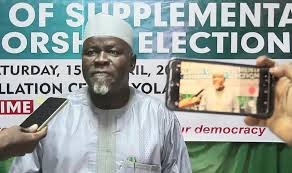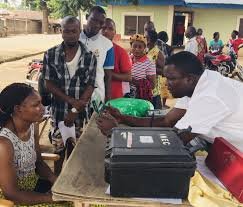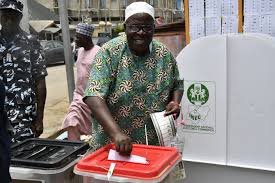On the eve of Ghana’s Presidential and Parliamentary Elections, heads of international observation missions gathered in Accra to compare notes and share insights about the upcoming democratic process.
In a statement, Nigeria’s former Vice-President Namadi Sambo, leading the ECOWAS Election Observation Mission, hosted a crucial meeting with representatives from various international organizations.
Dr. Sambo expressed optimism about the expected peaceful outcome, highlighting Ghana’s exemplary democratic track record since 1992.
“We are confident about the electoral process,” he told assembled international observers, including Leonardo Santos Simao from the UN and representatives from the European Union and civil society groups.
ECOWAS Commissioner for Political Affairs, Peace and Security, Ambassador Abdel-Fatau Musah, explained that the meeting’s primary objective was to ensure international observers were aligned in their approach and understanding of the electoral landscape.
Distinguished heads of missions, including former Presidents Sahle-Work Zewde (AU), Eri Mohamed Konnehc Masisi (Commonwealth), and Goodluck Ebele Jonathan (WAEF), shared updates on various aspects of the electoral process. While generally optimistic, some delegations raised concerns about trust in public institutions and the ballot counting and results management procedures.
The NDC delegation, led by Secretary General Dr. Bennie Naa Hoffman, specifically emphasized their concerns about results collation, urging international observers to maintain vigilant oversight.
The Explainer gathered that, more than 18.8 million registered voters from an estimated population of 34.4 million will cast ballots across 40,000 polling stations in 16 regions and 216 districts.
They will elect a new president and 276-seat parliament, with outgoing President Nana Akufo-Addo completing his mandatory two terms.
This election marks a historic moment, as both dominant parties are fielding candidates from the North – Vice-President Mahamudu Bawumia (NPP) and former President John Mahama (NDC) – representing a unique religious and geographical diversity, with one candidate being Muslim and the other Christian.
Ghana’s democratic journey is particularly noteworthy, having successfully completed nine unbroken electoral cycles since 1992, with power transitioning between parties on three occasions.
During the meeting, Dr. Sambo appealed to all stakeholders, including political parties, the Electoral Commission, and security agencies, to demonstrate high levels of patriotism, responsibility, and professionalism.


























